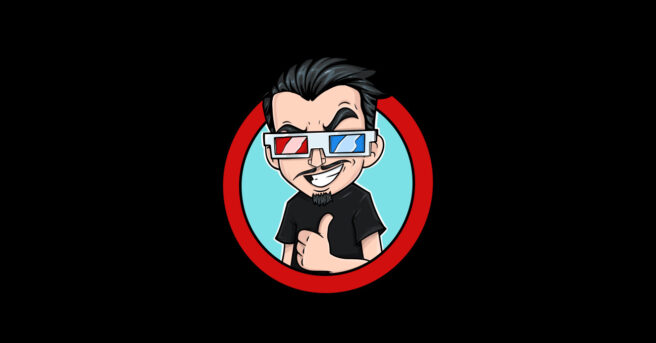Last Updated on August 2, 2021

Reviewed from New York Film Festival 2015
PLOT: A dramatization of three important days in the life of Apple co-founder Steve Jobs: the day he launched the first Mac, the day he launched Apple competitor NeXT, and the day he launched the iMac.
REVIEW: Steve Jobs was a smart man. He was a charismatic man and a self-centered man, a tough man and, sometimes, an extremely unlikable one to those closest to him. These things Danny Boyle‘s STEVE JOBS makes clear and indeed, these things most of the audience probably already knew going in. The film, written by Aaron Sorkin (working off Walter Isaacson’s book), presents Jobs in several lights, but we still never get any closer to knowing what made him tick – why Steve Jobs was the way he was isn’t really answered by the film. But perhaps that’s part of the point; if his closest confidants and friends couldn’t penetrate that shell, maybe we can’t either. And though the movie doesn’t entirely allow us to understand its subject, it is still undoubtedly an enthralling look at the man as he navigates a handful of the most crucial days of his life. Boyle and Sorkin have crafted a pulsating, riveting piece of cinematic theater that works better as pure entertainment than in-depth biopic. Since a movie’s first job is to entertain, we’ll gladly take it.

Michael Fassbender brilliantly embodies Steve Jobs, grabbing our attention in the opening minutes and never letting go, even as he’s in practically every single frame of the film. When we first meet him, in 1984, he’s preparing to reveal the Macintosh to the world. The film’s first act, which firmly establishes its relentless, real-time rhythm, paints Jobs in the unkindest light: he’s a mean, calculating, detail-obsessed despot who has no qualms about prioritizing machines over relationships. Here he’s in the midst of conflict with several key members of his world, including Chrisann Brennan (Katherine Waterston), a former girlfriend with whom he has a child. Well, it’s most likely his child – despite a positive paternity test, Jobs is unwilling to pay more than a pittance in child support to help his young girl, Lisa (played in this section sweetly by Mackenzie Moss). As Jobs coldly resists Chrisann’s pleas, he also wards off harmless requests from his Apple co-founder Steve Wozniak (Seth Rogen) to acknowledge the team behind the Apple II, the most popular product for the company at the time. It’s here we see Jobs as not only consumed with the future of his company, but unwilling to concede credit to his partners. As he prepares to bring his company to the next level, Jobs appears perfectly willing to do it solo. Fassbender is completely magnetic, and though he’s consistently solid throughout, he makes such a strong impression in the first act that it’s easily the most absorbing 30 minutes of the film.
As we see in the following chapters, Jobs manages to keep several core people in his orbit, most importantly Joanna Hoffman (Kate Winslet), one of the heads of Macintosh’s marketing team and Steve’s closest advisor, as well as John Sculley (Jeff Daniels), the entrepreneur who Jobs brought on the be Apple’s CEO in the 80s. When the second act of the film starts, we’re in 1988. Jobs has been forced out of Apple thanks to his obsession over the failing Macintosh, but he’s quickly on the verge of launching Apple competitor NeXT, which Jobs perhaps knew was doomed to flop. Machiavellian figure that he is, Jobs’ forward-thinking allows him to predict that Apple would flounder in his absence and that the technology utilized in his NeXT computers would ultimately revive the company. The second act brims with heated conversations between Jobs and Wozniak and Sculley, both of whom come to see the NeXT launch in an effort to sweep the past under the rug. Stubborn and hostile, Jobs doesn’t let things go their way. Rogen and Daniels really get an opportunity to shine at this juncture, going toe-to-toe with the commanding Fassbender during two particularly intense arguments. (No lie, I heard a few audience members exhale loudly – as if they’d just seen an action sequence – after one electric exchange between Fassbender and Daniels.)

The film’s third act, probably its weakest, seeks to redeem Jobs a bit. He’s working to reconcile with his daughter (now aged 19 and played by Perla Haney-Jardine) and is now a somewhat mellower presence, triumphantly preparing to show the world the iMac after returning to Apple. As the first act belongs fully to Fassbender and the second one is highlighted by dynamic turns by Rogen and Daniels, Winslet is allowed an extended, emotional scene where she bares her feelings to Jobs in no uncertain terms. Rogen gets another chance to flex his dramatic chops once again in a stirring sequence where Wozniak and Jobs go at it in front of several Apple employees, and Michael Stuhlbarg, who plays Apple inventor Andy Hertzfeld, is also very strong here. If Jobs has softened just a bit by this time, so too has the film, and its attempts to show Jobs in a positive light don’t quite carry the same impact as when we’re seeing him as a controlling, uncompromising prick. The concluding moments frankly feel like a bit of a cop-out, as if Sorkin and Boyle didn’t want us leaving the theater completely angry at their lead.
As can be expected, Sorkin’s script is filled with rapid fire exchanges and a countless number of quotable lines. You never actually buy that the real conversations went this way – no one talks like this unless they’ve been written by Aaron Sorkin – but it’s just so much fun to listen to that you’re willing to let it go. Comparisons to THE SOCIAL NETWORK will be inevitable; both films focus on hardheaded tech geniuses who seem determined to keep everyone at arm’s length even while they’re fundamentally lonely. (There’s even a moment in both films when someone calls out the brassy protagonist for acting like an asshole in order to make people actively dislike him.) As noted earlier, the STEVE JOBS script doesn’t get us inside the mind of the man so much as look at him from the frustrated perspectives of others. That may be a necessary evil.
Boyle proves to be a very inspired choice to helm the film; it ends up being a little less hyperkinetic than we’re used to with him. Using three different formats to bring each act to life (the first act was shot on 16mm, the second 35mm and the third DV), Boyle allows Sorkin’s script and his dynamic cast to lead the way, only occasionally inserting stylistic flourishes such as having type appear on screen or stock footage project in the background. His use of music is also unique, as each act utilizes its own specific score (all composed by Daniel Pemberton). The editing by Elliot Graham is top-notch, perfectly accentuating Sorkin’s breakneck dialogue and adding flashbacks – only momentarily – at critical points. STEVE JOBS may not be the definitive biopic of the great and greatly flawed man, but it’s exciting, involving filmmaking, thanks to tremendous efforts from the key people in front of, and behind, the camera.




















Follow the JOBLO MOVIE NETWORK
Follow us on YOUTUBE
Follow ARROW IN THE HEAD
Follow AITH on YOUTUBE